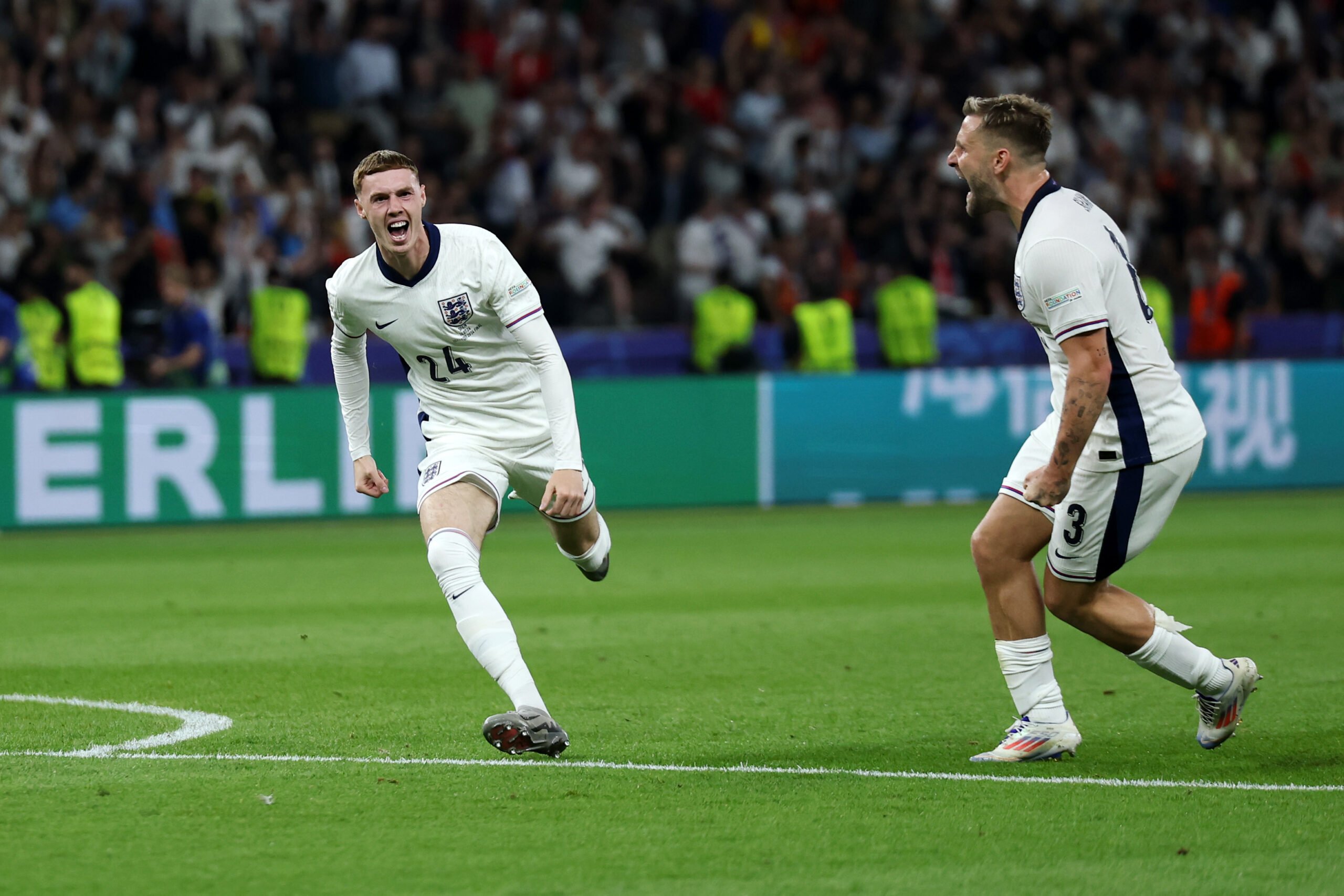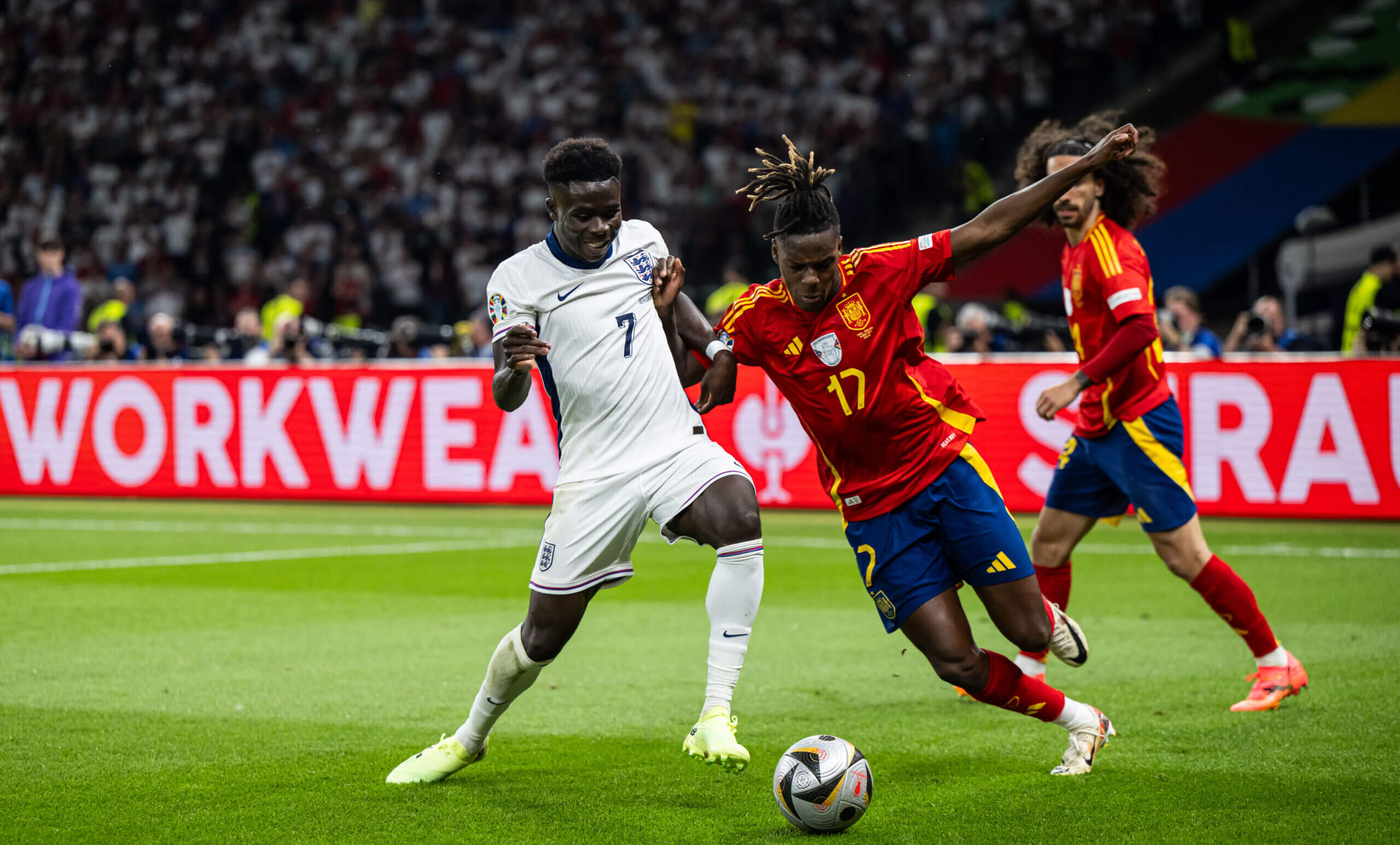John Stones collapsed on his back and stared at the stars. Declan Rice dropped to his knees. Phil Foden collapsed in the dugout, staring into space. Jude Bellingham walked over to the England bench and vented his anger on a blue bucket of iced drinks. Cole Palmer walked over and sat on it. A member of staff moved the ice with his foot in apology.
This is what it looks like when a life’s dreams are shattered, not once, but for the second time in three years.
For the past few weeks, England have seemed to have destiny on their side, protected by an aura that guides them through the tournament, and perhaps even into the history books. How else to explain this series of incredible comebacks, this rescue by individual heroics that has taken them all the way to Berlin? And after Palmer scored another brilliant equaliser in the final, and the stadium was a wall of English noise, it was easy to believe that they were on their way to the greatest comeback of all.
But if England thought they had become a winning machine, had developed the worrying inevitability of an international Real Madrid, it was with immense shock, pain and tears that they realised that it was ultimately their opponent who was the winning machine. Because if England hoped to rely on their momentum and magic in those final minutes, it was Spain who kept their cool and scored the winning goal.
A win would have made this team immortal, but this defeat will also go down in history. Everyone here knew that this was a defining moment for English football, for better or worse, the culmination of the Southgate era, a chance to end what has become one of the longest and most significant losing streaks in the sport.
Of course, there will now be many desperate phone conversations and painful hours of Wyscout. People will demand recriminations, a full accounting of why England failed to win again. That is what we expect from finals, final judgments, a belated clarification of the issues that have been troubling us all. And this match has been arranged to give us that final clarity about Southgate, about the last eight years, about whether gasball has been England’s method of progress or the only obstacle to their progress.

Palmer celebrates a goal that temporarily gave England hope (Eddie Keogh – The FA/The FA via Getty Images)
But in the end, it was just a 90-minute football match, a place of messy contingencies where nothing is as inevitable as one might think.
Spain were clearly better than England, and by a significant margin. They were the best team in the tournament, playing with a combination of controlled possession and incisive wingers that gave them the look of a top-flight team. Putting all that magic aside for a moment, England were clearly struggling. They had a day less to prepare, their round of 16 and quarter-finals had both gone to extra time and, most importantly, they had not played as well as their opponents.
So England came with a plan. They seemed content to simply defend in a 4-5-1 formation, with Bukayo Saka covering Kyle Walker as an extra full-back. They wanted to stop Spain converting possession into chances and they did so brilliantly in the first half. Their organisation was impeccable, their tackling and counter-attacking heroics. At half-time, you might have thought Southgate would be the happier manager.
But there were two problems. First, England offered virtually nothing with the ball. Second, they defended so well that it was almost impossible to be perfect all night. Sure enough, two minutes after the restart, they changed their strategy and found themselves behind.
It took Southgate’s brave substitutions to get England back in the game, Ollie Watkins for Harry Kane, who looked as direct as he had in Tottenham’s 2019 Champions League final defeat to Liverpool. Then Palmer for Kobbie Mainoo. Three minutes later, Palmer equalised. For a few minutes, it felt like history was turning in England’s favour. It turned out they were running on empty.
So what are we to make of all this? Because ultimately we need to draw Southgate’s conclusions, to draw definitive conclusions. It seems unfair to blame him for England’s defeat when they were beaten by a clearly superior team. Some will say that the first-half game plan was too negative, that if England had taken the game to Spain’s advantage they could have disrupted the passing at source rather than sitting back and waiting for the ball to bounce in their favour.
Perhaps, but it would have taken a brave manager to play high up the pitch against Lamine Yamal and Nico Williams and an even braver one to press high in a final at the end of a gruelling tournament. England’s plan was negative, but it was perhaps the best plan to keep them in the game for as long as possible. They just had to be perfect and they weren’t.

Playing high is a dangerous strategy against players like Williams (Edith Geuppert – GES Sportfoto/Getty Images)
If one is to be lenient with Southgate, one could say that England fought harder than they did in their final defeat to Italy three years ago, when they were 1-0 up against a crafty but unspectacular team, lost their nerve, drew and lost on penalties. Tonight at least, England faced a great team, fought their way out of the passing carousel and got back into the game.
One could even point to Southgate’s courage from the bench, in bringing on Watkins and Palmer, as an improvement he has made on 2021. While Watkins looks much sharper than Kane, it is reasonable to question whether Watkins should have played from the start. Nothing Kane has done in his hour on the pitch suggests he should have started the game.
Ultimately, what connects tonight to the Italian final, as well as the players’ pain of watching their opponents lift the trophy, is the fundamental inability of the players to keep the ball under pressure. Southgate was very frank after the game that this was the problem. He pointed to the mitigating circumstances, the physical strain on the players, the problems in the squad, but he also knows that all of this has only mitigated things so far. “We have to be firm: Spain were better,” Southgate said. “At the end of the day, that’s it.”
The reasons why Spain are able to play like this and England are not are so profound that it seems unfair to blame Southgate’s decisions this month. But after eight years in the job and two finals lost, no matter how narrow the margins in those games, many fans will return to England on Monday wondering whether another manager might have a new approach to solving these problems.
(Top photo: Stu Forster/Getty Images)